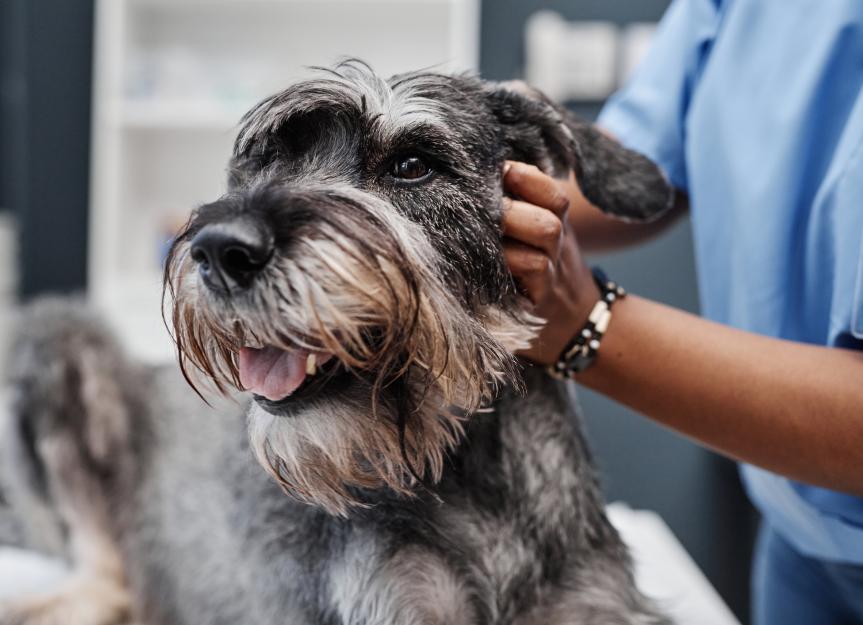
You might have heard of the American Animal Hospital Association (AAHA), but do you know what the organization really does?
In simple terms, AAHA puts together and continually updates standards and guidelines that promote excellence in veterinary care and accredits veterinary clinics that prove they meet or exceed those standards.
Understanding how AAHA works can help pet parents choose a veterinarian who is a good match for them.
Key Takeaways
- The American Animal Hospital Association (AAHA) sets veterinary care standards and accredits animal hospitals that meet or exceed them.
- AAHA guidelines cover a wide range of pet health topics, including pain management, preventive care, and disease treatment, supporting personalized veterinary care.
- AAHA accreditation is a voluntary process that reflects a hospital’s commitment to providing exceptional veterinary care beyond basic legal requirements.
- Only 15% of veterinary hospitals are AAHA-accredited, making the designation a meaningful indicator of high-quality care.
What Is AAHA and What Do They Do?
The American Animal Hospital Association is a leading veterinary organization. It was established in 1933, focusing on the creation of comprehensive standards for the practice of veterinary medicine for companion animals.
Over the years, the organization’s influence has only increased.
Among other roles, AAHA currently:
-
Manages accreditation of veterinary hospitals in the United States, Canada, and other parts of the world. AAHA provides training and conducts rigorous on-site evaluations to ensure adherence to hundreds of standards of care.
To put it simply, AAHA supports veterinary practices by providing resources and guidance to help them deliver quality care.
What sets AAHA apart from the American Veterinary Medical Association (AVMA) and other veterinary associations is its unique role as an accrediting body.
While organizations like AVMA focus on professional licensing and veterinary education, AAHA concentrates on practice standards and advancing optimal care in animal hospitals.
What Are AAHA Guidelines?
AAHA guidelines help veterinary professionals provide the best medical and surgical care to pets. These evidence-based recommendations cover many important aspects of companion animal care, including:
-
Management of specific diseases and conditions, such as diabetes, allergies, endocrine disorders, and cancer
The American Animal Hospital Association guidelines are some of the most widely respected and implemented protocols in veterinary medicine, but they are not rigid, one-size-fits-all rules. Instead, they recognize that each pet’s lifestyle and risk factors influence their care needs, and veterinarians use the guidelines in combination with all the other information they gather about the specifics of a patient’s case to come up with an individualized treatment plan.
The recommendations provided in these documents can also be helpful to pet parents.
For example, if your dog has been diagnosed with allergic skin disease and prescribed Apoquel (oclacitinib), you can learn more about the medication in the 2023 AAHA Management of Allergic Skin Diseases in Dogs and Cats Guidelines.
What Does It Mean To Be AAHA-Accredited?
AAHA accreditation is one of the highest achievements a veterinary practice can earn. The accreditation process is both demanding and comprehensive. It usually takes a practice between two and six months to work through all the steps involved. Once a veterinary practice has been AAHA-accredited, it must be routinely reevaluated to maintain its accreditation.
All practices must meet or exceed mandatory standards that apply to their facilities, services offered, patient care, and clinical protocols, involving:
Veterinary practices are also evaluated against certain additional standards (more than 900 in total) based on the type of care they provide. All these standards have been put together by experts in the associated fields and are updated regularly.
Do All Veterinary Clinics, Hospitals, and Offices Need To Be AAHA- Accredited?
AAHA accreditation in veterinary medicine is voluntary, and veterinary practices can legally operate and serve the public without it.
The voluntary nature of AAHA accreditation makes it even more meaningful. When an animal hospital chooses to pursue accreditation, it’s making a special commitment to excellence that goes beyond minimum legal requirements.
Of course, animal hospitals without accreditation can still provide exceptional care and serve their patients and clients well. Many compassionate and highly skilled veterinarians work at non-accredited practices.
With that said, seeing the AAHA-accredited logo on a veterinary practice’s sign or brochure is a simple way to know that the hospital has been evaluated by a third party and provides an above-average level of care.
AAHA FAQs
What does AAHA stand for?
AAHA stands for the American Animal Hospital Association.
It’s the only organization that accredits veterinary hospitals throughout the U.S. and Canada and provides similar services in other parts of the world.
How important is AAHA accreditation?
Only 15% of veterinary hospitals have undergone the rigorous AAHA accreditation process.
While clinics that are not AAHA-accredited can certainly provide excellent medical and surgical care, AAHA-accredited hospitals stand out by demonstrating their commitment to meeting or exceeding the highest veterinary standards.
What are the AAHA guidelines?
The AAHA guidelines are comprehensive recommendations backed by the latest research that help veterinarians provide optimal health care to pets.
They cover many aspects of companion animal care, including vaccination, anesthesia, pain management, nutrition, and preventive care. The guidelines help veterinarians make the best possible recommendations for their patients based on the latest research and each pet’s unique needs and lifestyle factors.



